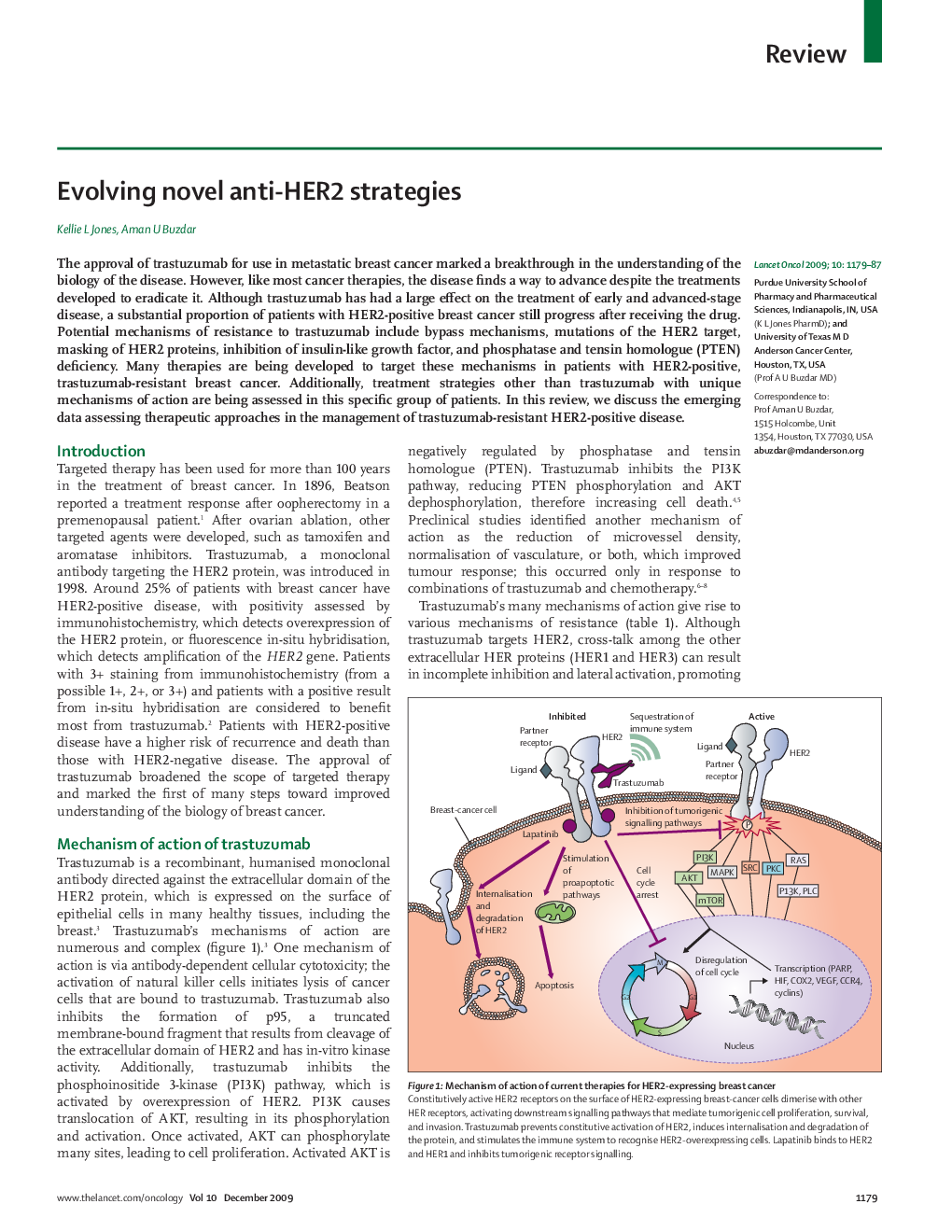| Article ID | Journal | Published Year | Pages | File Type |
|---|---|---|---|---|
| 3994592 | The Lancet Oncology | 2009 | 9 Pages |
SummaryThe approval of trastuzumab for use in metastatic breast cancer marked a breakthrough in the understanding of the biology of the disease. However, like most cancer therapies, the disease finds a way to advance despite the treatments developed to eradicate it. Although trastuzumab has had a large effect on the treatment of early and advanced-stage disease, a substantial proportion of patients with HER2-positive breast cancer still progress after receiving the drug. Potential mechanisms of resistance to trastuzumab include bypass mechanisms, mutations of the HER2 target, masking of HER2 proteins, inhibition of insulin-like growth factor, and phosphatase and tensin homologue (PTEN) deficiency. Many therapies are being developed to target these mechanisms in patients with HER2-positive, trastuzumab-resistant breast cancer. Additionally, treatment strategies other than trastuzumab with unique mechanisms of action are being assessed in this specific group of patients. In this review, we discuss the emerging data assessing therapeutic approaches in the management of trastuzumab-resistant HER2-positive disease.
